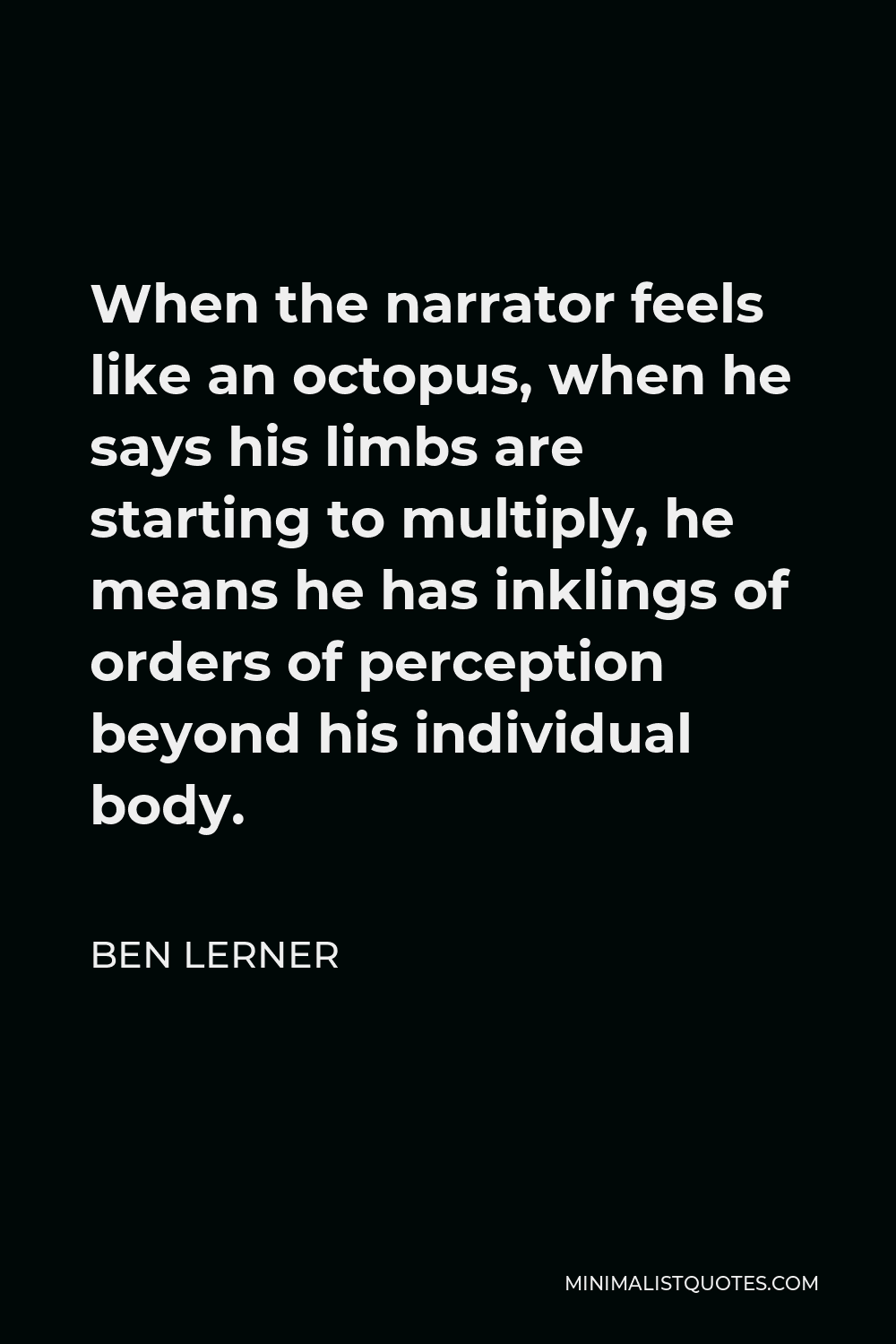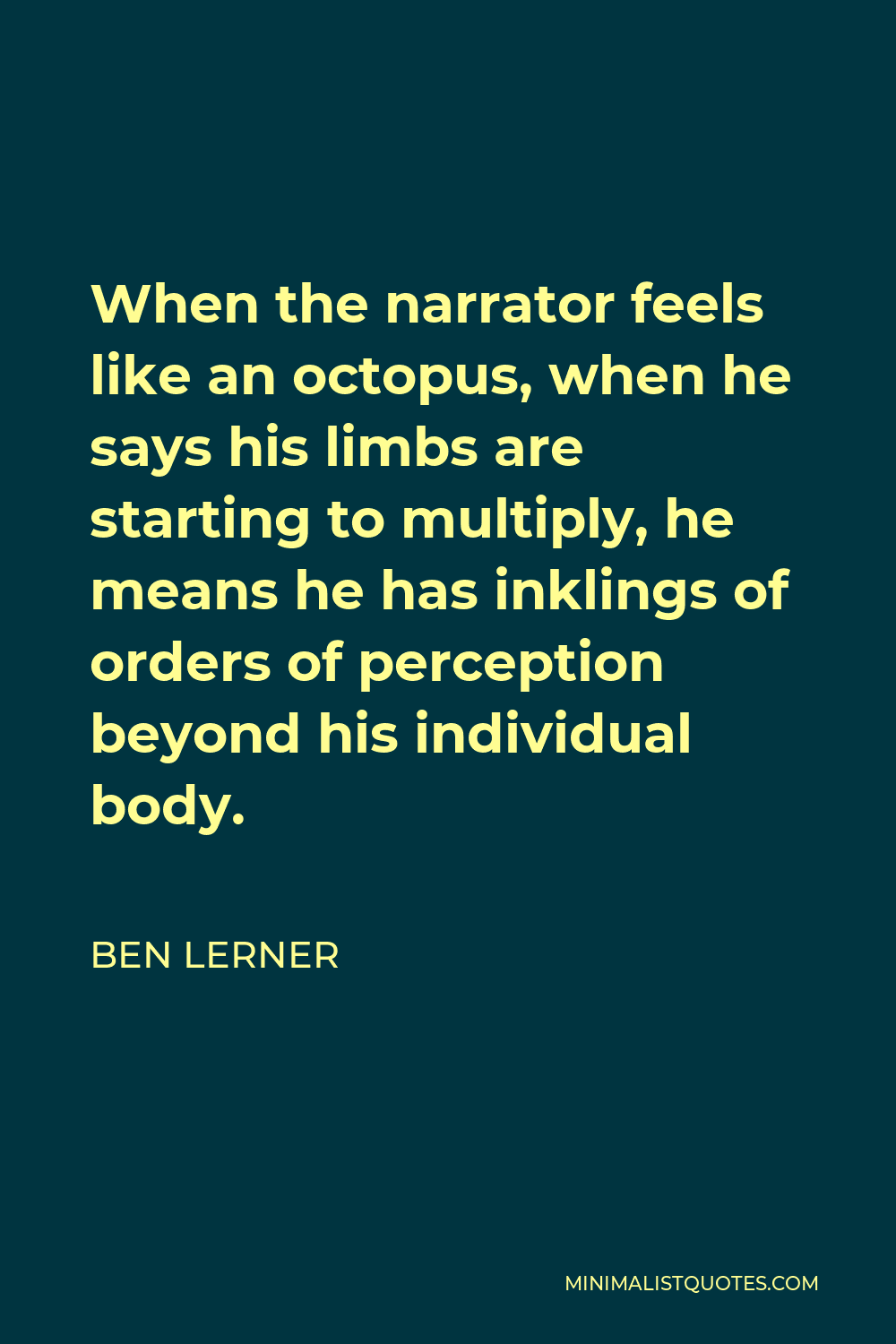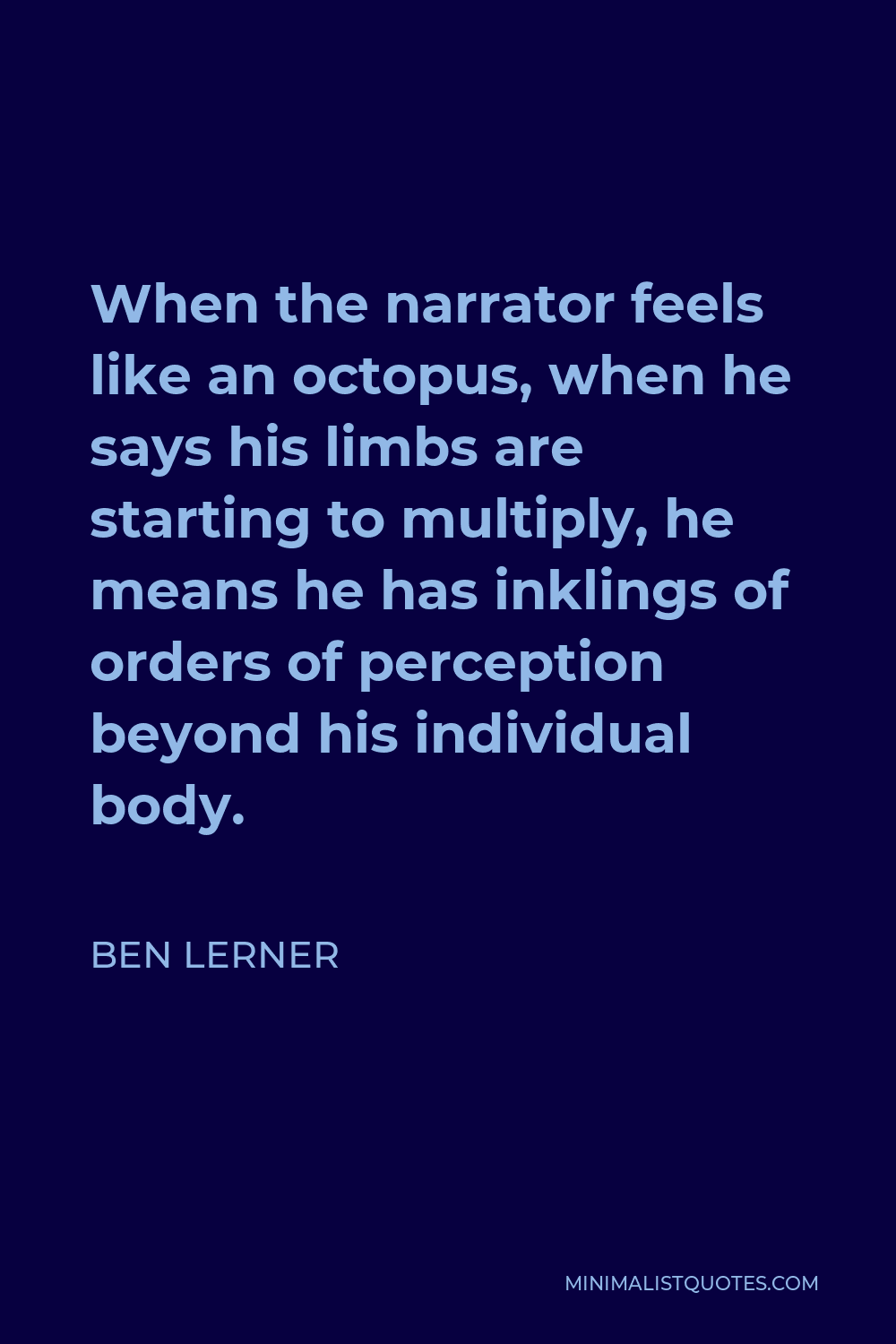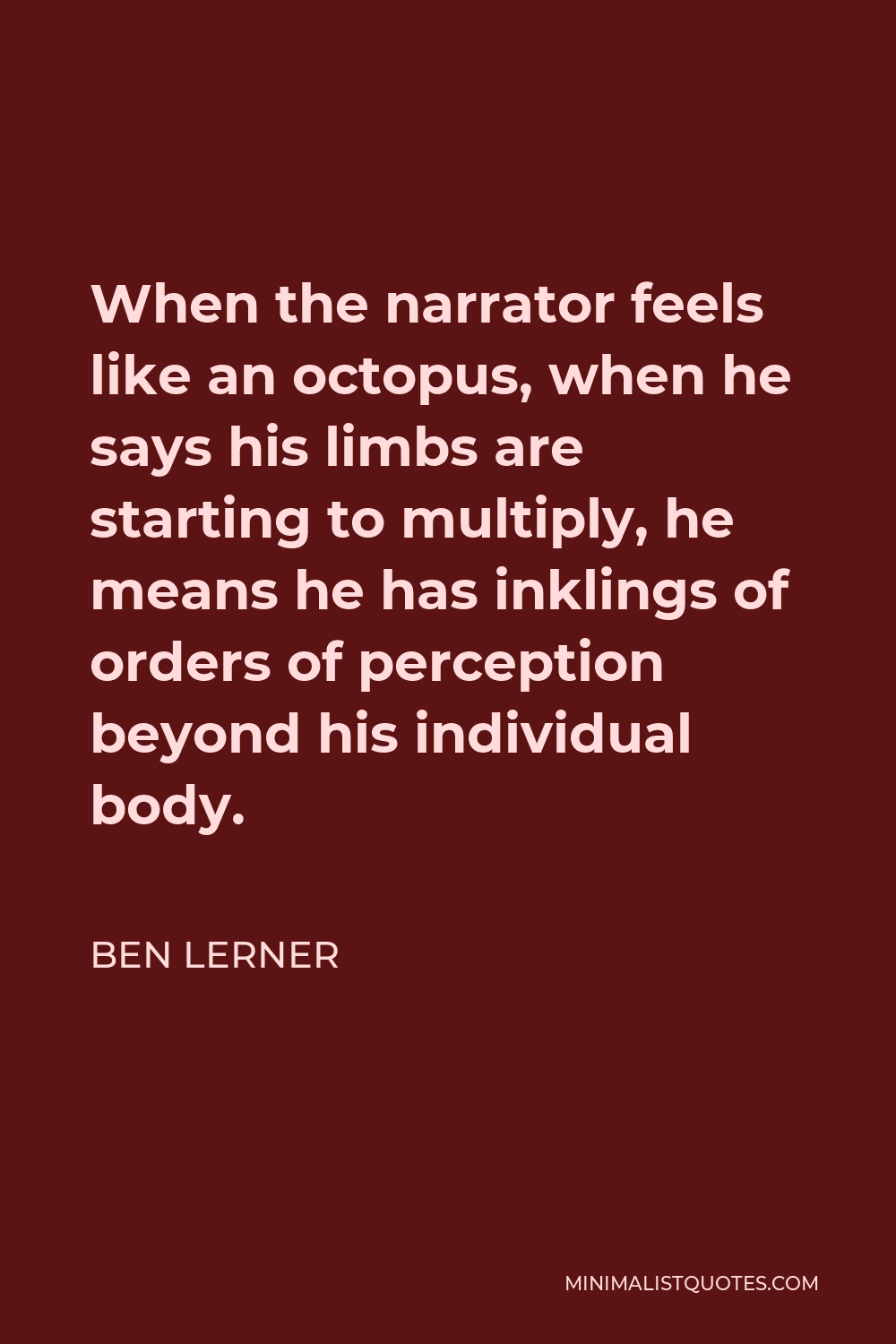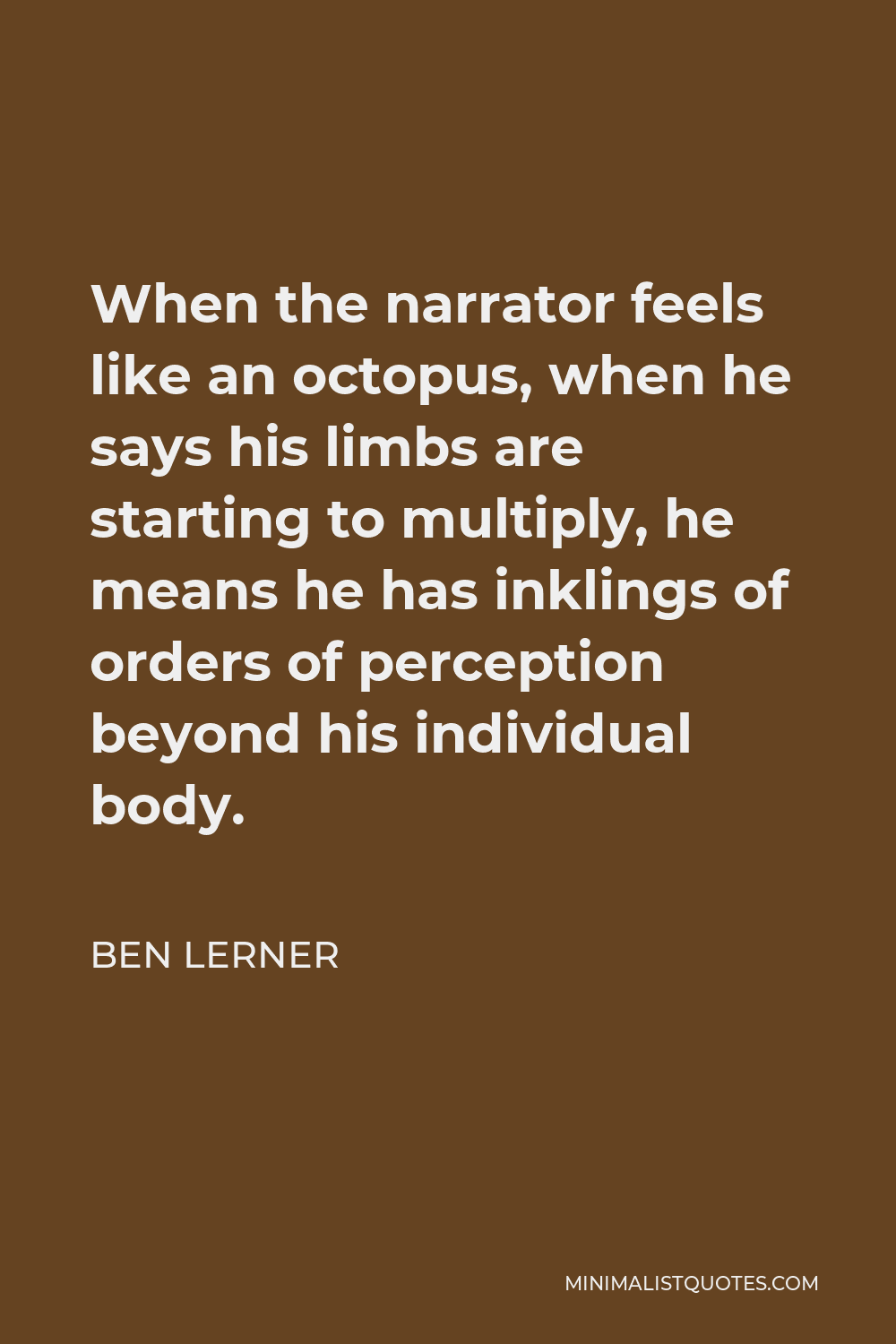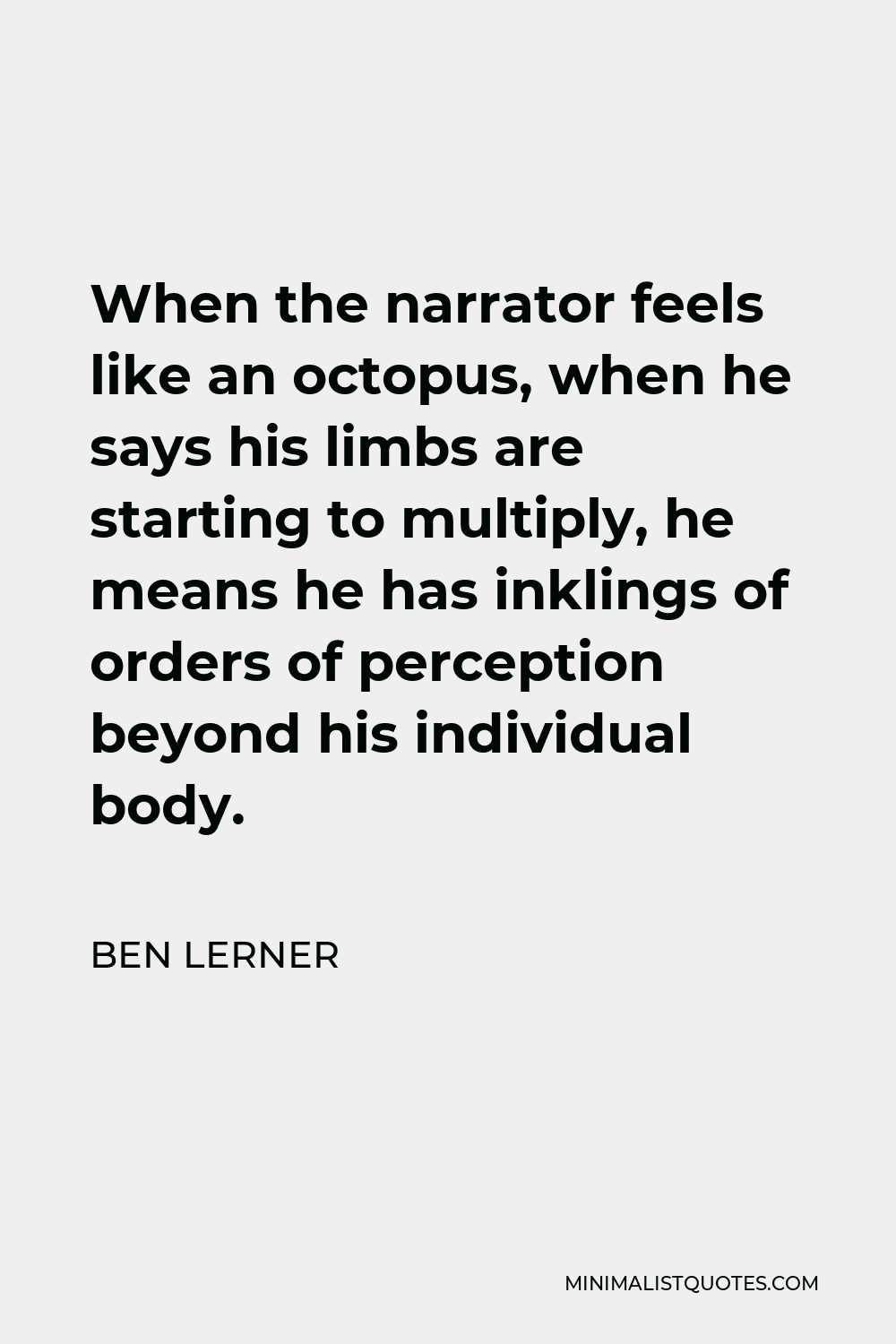What interests me about fiction is, in part, its flickering edge between realism and where a tear in the fabric of a story lets in some other sort of light.
BEN LERNERWhen the narrator feels like an octopus, when he says his limbs are starting to multiply, he means he has inklings of orders of perception beyond his individual body.
More Ben Lerner Quotes
-





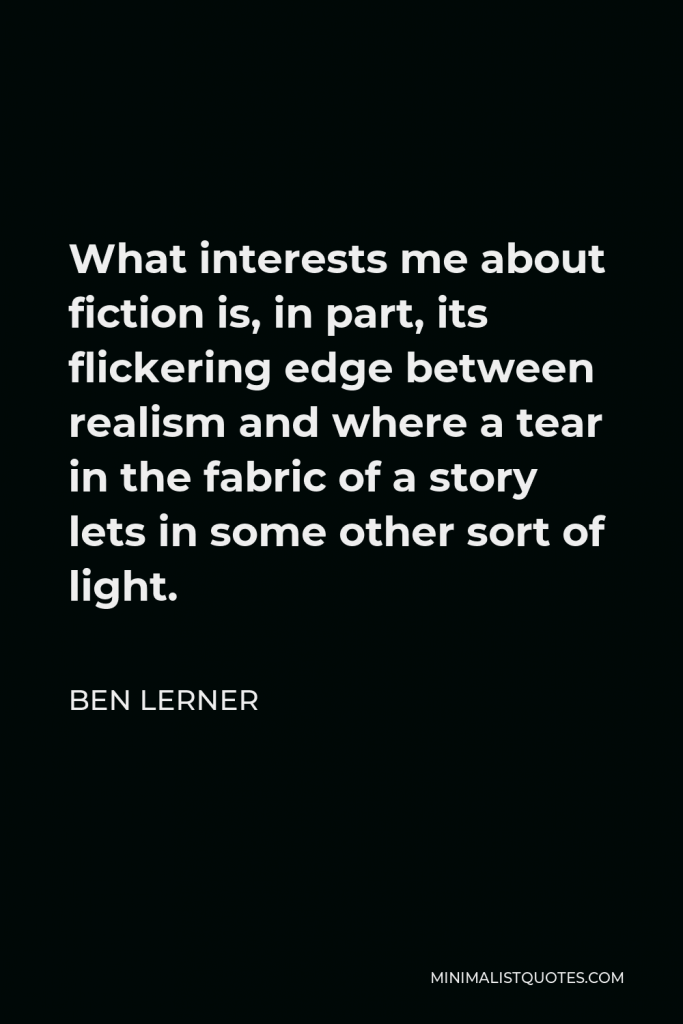

-







I’m trying to be somebody on whom the experience is lost by supplanting it with its telling. I definitely do that in medical contexts, even in trivial ones.
BEN LERNER -





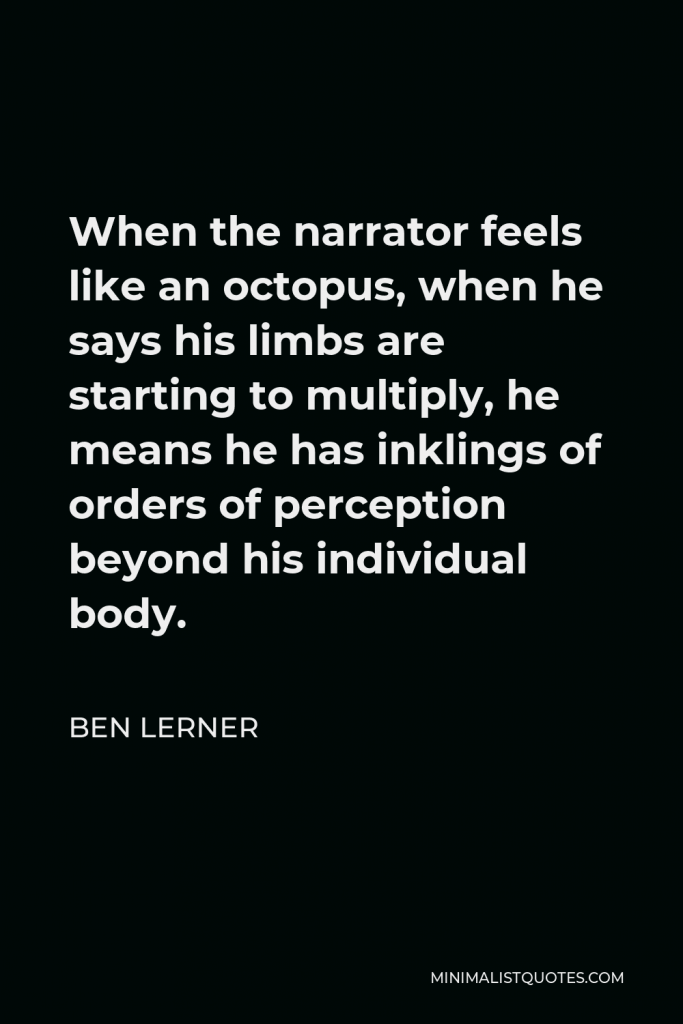

When the narrator feels like an octopus, when he says his limbs are starting to multiply, he means he has inklings of orders of perception beyond his individual body.
BEN LERNER -







Most of us start from that position of irony now and what I wanted to do – really felt like I had to do if I was going to write another novel – was move towards something like sincerity.
BEN LERNER -





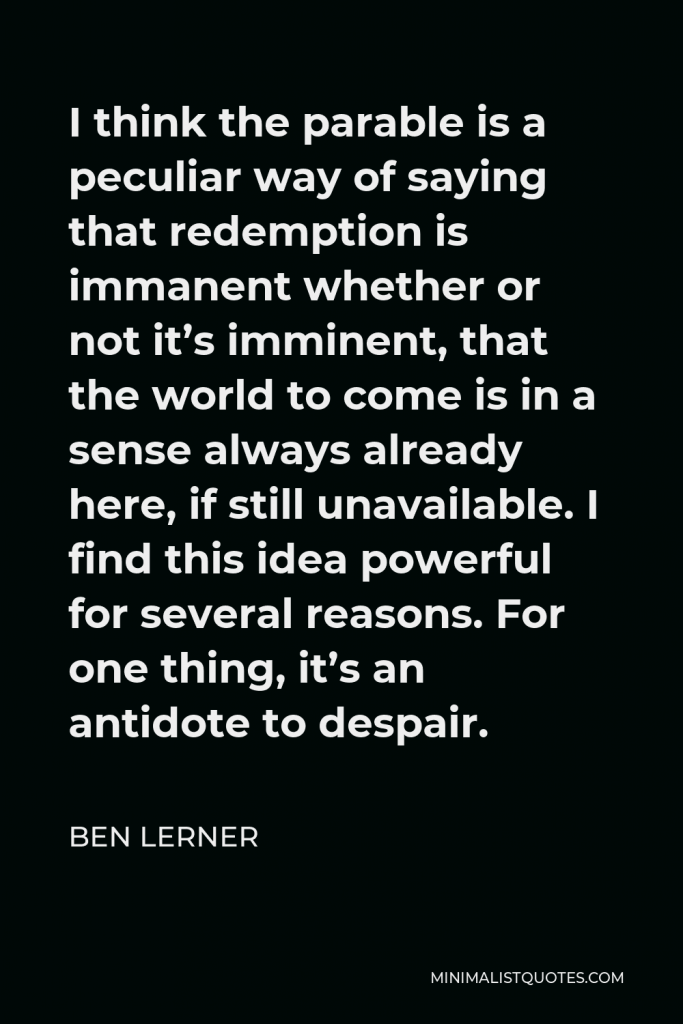

I think the parable is a peculiar way of saying that redemption is immanent whether or not it’s imminent, that the world to come is in a sense always already here, if still unavailable. I find this idea powerful for several reasons. For one thing, it’s an antidote to despair.
BEN LERNER -






I usually see the word “metafiction” applied to works that draw attention to their own devices, their own artificiality, in order to mock novelistic convention and show the impossibility of capturing a reality external to the text or whatever.
BEN LERNER -






I like to think – knowing that it’s an enabling fiction – of those moments as fragments from a world to come, a world where price isn’t the only measure of value.
BEN LERNER -






Art has to offer something other than stylized despair.
BEN LERNER -







Many of the left thinkers that really matter to me – that formed a big part of my thinking about politics and art – emphasize how capitalism is a totality, how there’s no escape from it, no outside.
BEN LERNER -







I don’t think it’s always a sign of respect for persons (inside or outside of fiction) to pretend to be able to represent, to have access to, their multi-dimensionality at every moment. That doesn’t imply people aren’t multi-dimensional.
BEN LERNER -





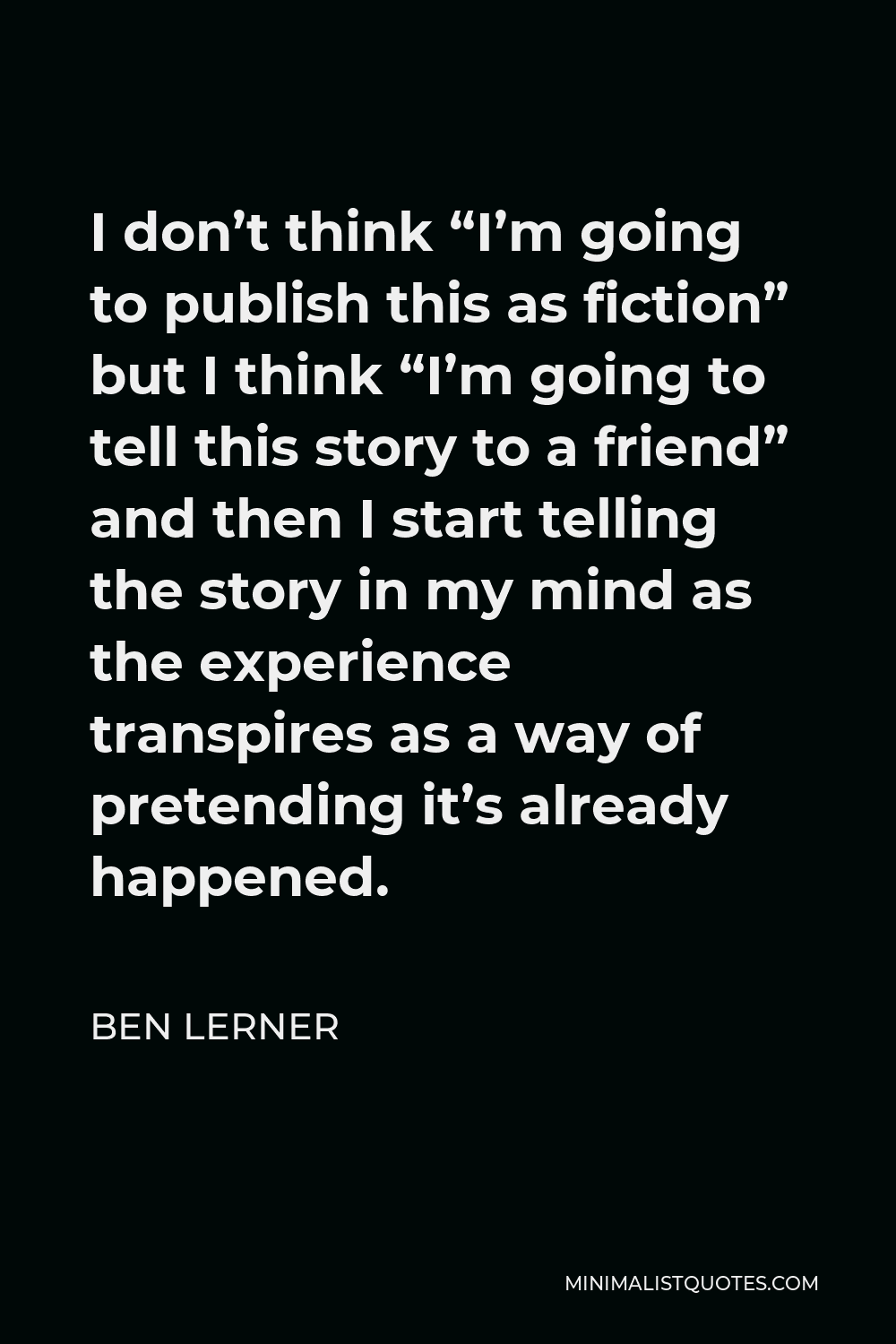
I don’t think “I’m going to publish this as fiction” but I think “I’m going to tell this story to a friend” and then I start telling the story in my mind as the experience transpires as a way of pretending it’s already happened.
BEN LERNER -






Anyway I read more contemporary poetry than contemporary fiction so my mind goes first to a kind of crass “conceptualism” that repeats vanguard gestures of the past minus the politics and historical context.
BEN LERNER -






I wasn’t aware I’d write the novel when I wrote the New Yorker story either. And the narration of their construction in 10:04 is fiction, however flickering.
BEN LERNER -







The problem is that if you’re self-conscious about being a person on whom nothing is lost, isn’t something lost – some kind of presence? You’re distracted by trying to be totally, perfectly impressionable.
BEN LERNER -






The scare quotes burn off like fog.
BEN LERNER -







I’ll work my way from irony to sincerity in the sinking city, a would-be Whitman of the vulnerable grid.
BEN LERNER
